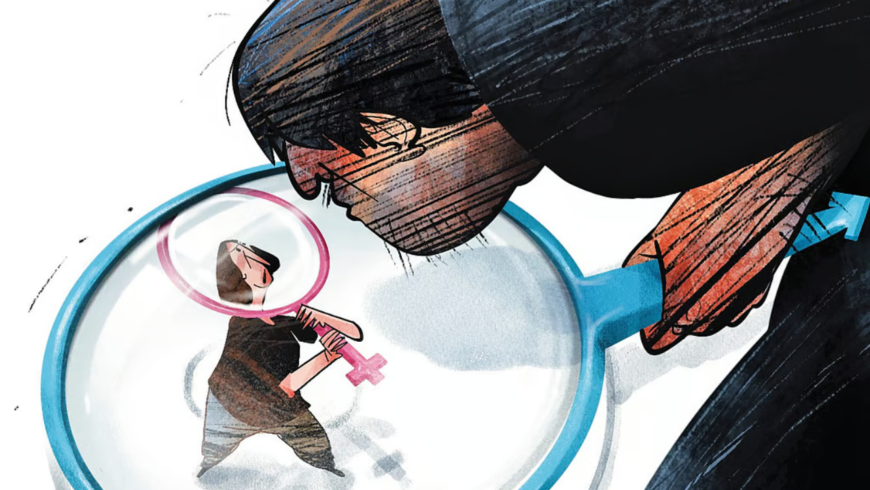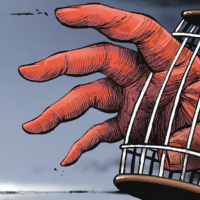Many cases of rape are never reported because of the consequent societal implications. What is required is social reform at the level of the family unit
Of all crimes, rape is the most heinous. The nation’s conscience is deeply disturbed by its frequency. Apart from this, the frequency of crime against women is also a matter of national shame. In the past, such incidents were seldom reported. Reporting these crimes has created awareness that such barbaric acts of criminality must be investigated swiftly and dealt with expeditiously. Instances of child rape alone soared by 96 percent from 2016 to 2022. In 2016, 19,765 cases were reported while in 2017, it was 27,616. This number increased to 36,381 in 2021. In 2022, it stood at 38,911. In 2021 alone, India lodged 49 offences against women per hour. This is probably because of higher reporting and enhanced awareness about the reporting mechanism. Greater accessibility through help-lines and agencies in aid of justice for victims has also helped. Families of the victims now have an avenue to ensure such criminals are brought to book.
Rape is symptomatic of many things. It is symptomatic of a desire to dominate and overpower, a negative human attribute. What does the above data suggest about our society? That it is misogynistic to the extreme; that women are objects of both pleasure and derision; that each insensitive male believes he can get away with it. This emerges from our embedded cultural milieu in which girls have a secondary place in our families. I am not talking about enlightened households that embrace liberal traditions. But even there, we find on many occasions an element of discrimination when it comes to allowing them to discover and realise their dreams as an equal participant in society.
Child marriage, though illegal, is still rampant. That is also the reason why a woman’s place in society is recognised as being a doting wife, serving the household instead of an independent personality with an equal right to participate in the life of the nation. Girls are left with very few choices as they grow, very few career options.
On most occasions, marriage is the only option, where the choice of a partner is also seldom an option. In rural areas where agriculture is a family’s mainstay, women work in the fields to sustain the household. Their options are far more limited. There are many talented young girls who could pursue their careers but are married and thereafter, either do not realise their ambitions at all or give a break to their career and then, if possible, continue after they have raised their families. This too, is an exception.
In the urban workplace, technology has helped young women work from their homes in certain professions, wherein it is not necessary to go to the workplace on a daily basis. The pandemic had one collateral positive impact. To sustain themselves, businesses welcome employees, both men and women, to work from their respective places of residence. This practice has also been embraced after the pandemic, reducing costs and helping businesses. Technology, in that context, has proved to be a boon for women who now can work from home, a privilege not available in many vocations.
Unfortunately, many cases of rape are never reported. Families are not willing to take the courageous step of pursuing the rapist because of the adverse effects of disclosure and the consequent societal implications. This is most unfortunate because as a nation, we need to make sure such incidents are brought to light and the families develop the courage to seek justice. While it is true that we have procedures in place for expeditious trial and conviction, the problem is far more complicated than it seems.
What is required is social reform at the level of the family unit. The only way forward is to inculcate within the home and classroom a value system that recognises our young girls as equal participants in society, entitled to pursue their studies with the right to take up a career of their choice. They must be encouraged to believe they can and have the right to realise their aspirations, and must develop the courage and have the freedom to do that. Of course, it is easier said than done. It requires a transformational change in societal attitudes. The parents too need to be educated to think that way.
We are aware that there are fewer women in our workforce as compared to other countries, not just in the developed world but also in the neighbourhood. This must change, and change can only be brought about with the transformation of the male mindset, especially in households that are steeped in conservatism.
Women are far more adept in certain vocations. There must be a policy framework to identify such vocations where women can be absorbed. We are aware that the largest percentage of women is within the school system, where a majority of them are teachers. One of the major reasons, of course, is that they can multitask by teaching as well as taking care of their households. We must also find avenues and opportunities in vocations where women can be a force to reckon with. Perhaps it is time for us to set up an institutional framework wherein young girls who wish to pursue their studies and profession have the choice to express their desires. The state can set up mechanisms that, in case the family objects, allow for solutions that can only emerge through dialogue.
Apart from the above, we must ensure agencies investigating heinous crimes against women are sensitised to ensure these matters are dealt with the greatest of care and there is no place for any kind of biased investigation. What is involved is the dignity of women, which should never be compromised. Even more important is for political parties to ensure such instances are not looked upon as fodder for political mileage. That only muddies the water.
It is a national shame that we play politics with such incidents. Courts too must be cognisant and ensure an incident of rape does not become a political spectacle.











